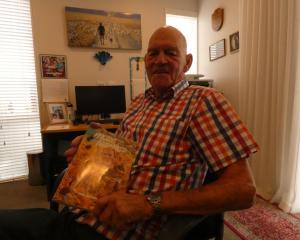
He was appointed New Zealand Fish & Game Council chairman in November 2020 after a long career in industrial relations, government, corporate directorship and environmental tourism.
Following recent Fish & Game Council elections, Mr Grubb is in line to continue as chairman but must wait until December 4 to learn if his role has been confirmed by the Minister of Conservation.
Whatever happens, Mr Grubb remains chairman of a government-appointed three-person steering committee that is implementing a ministerial review of the national body and its 12 regional councils.
The New Zealand Fish & Game Council is regarded as a very effective conservation advocate, with multiple resource management wins in the bag.
But there have been allegations of internal dysfunction. Former minister of conservation Eugenie Sage ordered an independent review in 2019.
Her recommendations — which include reducing the number of regional councils and councillors — are being carried forward by the Acting Conservation Minister Ayesha Verrall.
Mr Grubb wants change, whether he is national council chairman or chairman of the steering committee.
He is a volunteer and estimates he spends between 40 and 50 hours a week researching, reading and attending council-related Zoom meetings.
"I am not getting much time for fishing but I will do. I haven’t been out this season. I had two glorious days last year. I can’t tell you where because I would have to kill you.
"I love fishing but I love the reason for going fishing more than getting fish. I take more photos than fish when I am out...
"I go out to clean my soul. That is what the Otago back country is all about.
"I fish, catch and release. I don’t kill anything except possums and stoats. I’m absolutely typical of a fly fisherman in New Zealand."
Mr Grubb agreed to serve the national body last year after an Otago colleague, Colin Weatherall, stepped back from his national council role for health reasons.
The first thing Mr Grubb did was dump Fish & Game’s confrontational "dirty dairying" campaign.
Ms Sage had raised issues of bloated governance, conflicts of interest, regional parochialism, inconsistent financial reporting and auditing systems, lack of Maori representation, and aggressive advocacy.
"In my opinion it was overstated. But it had been 30 years since we had had any kind of review and there weren’t cellphones or computers 30 years ago. We needed to modernise. Communications had got better, roading had got better...
"We have more councillors than there are MPs. There’s 134 councillors, with 12 on the New Zealand council.
"The reality is tensions came about because systems and governance were outmoded," Mr Grubb said.
Otago is one of eight regions that has already reduced from 12 councillors to eight or nine.
Mr Grubb says they should be treated as professional directors.
New planning and financial systems, governance training and risk management systems will be on the agenda when regional chairs and managers meet in Wellington on February 22 next year.
The changes could take up to three years and consultation would occur, he said.
Regionally, Mr Grubb longs for resolution of the robust Central Otago debate about Manuherikia River water takes and minimum flows.
Science suggested a flow of 3000 litres per second. The Otago Regional Council needed to step up, support its staff and take responsibility for that, he said.
"There are places in New Zealand — the driest places in New Zealand — where we should not have intensive water use for agriculture. It is a no-brainer.
"We must find ways of returning water to future generations ... I look forward to getting back to the days where there were no toxic algal blooms and dogs do not die when they drink from rivers. If we don’t protect our environment, we have nothing left," he said.















